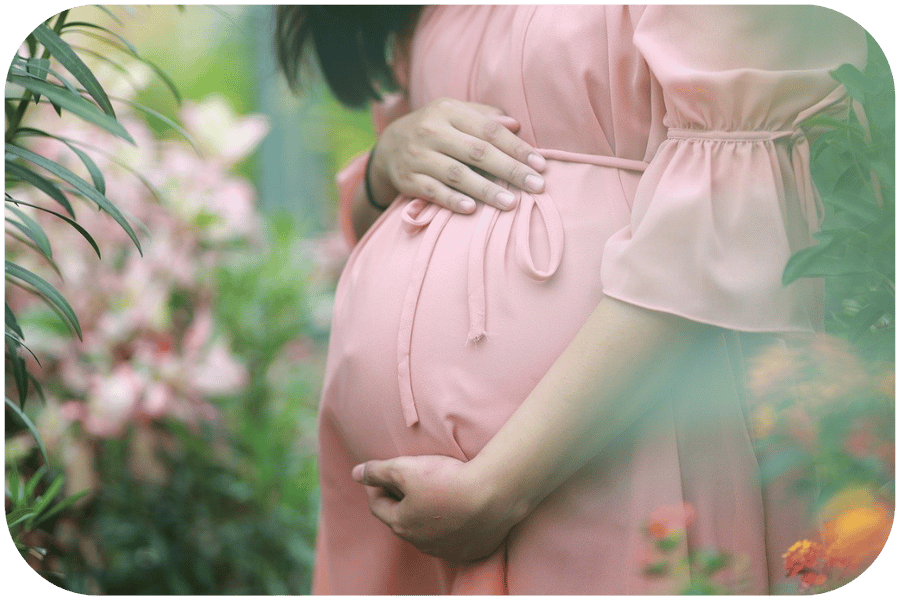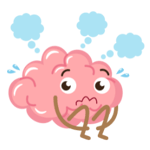Prenatal and Post-Partum Counselling
Compassionate support for perinatal mental health

If you look through the racks of greeting cards for new parents, you’re not likely to find one that reads, “Are you ok?” Although people often focus on the wonder, love, and life-changing joy of becoming a parent, few of them talk about how difficult the transition can be.
Pregnancy and childbirth aren’t all beautiful Instagram moments. Like any life-altering change, having a baby can stir up unexpected feelings. The physical demands and hormonal changes of pregnancy can create challenges for both partners. New parents are often surprised by the raw emotions they experience during this time, but they’re not alone. Perinatal mental health is a struggle for more individuals and couples than you might expect.
The good news is you don’t have to navigate this alone. Prenatal counselling can help you to tackle emotional challenges, empower you to prepare for what’s to come, and support you to adjust to the changes in your life. If you’ve already given birth, postpartum counselling can support you as you recover from childbirth as well as help you to discover what kind of parent you want to be.
For many new parents, this is their first experience with an important truth: you deserve to get all the support you need. Therapy can help you be the parent you want to be and enable you to enjoy this incredible journey.
Perinatal Mental Health Symptoms
Recognizing Common Challenges
Mental health problems during pregnancy and early parenthood can be as different as the individuals who experience them. However, there are some typical causes and symptoms to look out for.

Depression
This can take the form of feeling weepy or sad, but it can also present as irritability, anger, or trouble concentrating. Some individuals experience a lack of interest in their baby, hopelessness, or thoughts of harming themselves or their baby.

Anxiety
A common symptom of anxiety is excessive fear about your baby’s health and safety. Some parents have panic attacks or trouble sleeping because of worry. Logic and sensible information about these risks doesn’t reduce these fears.

OCD
People sometimes experience upsetting thoughts that they can't control. These thoughts can cause them to perform repetitive actions or rituals to reduce the anxiety they create. Even though most individuals are able to resist acting on dangerous impulses, they can significantly impact their quality of life.

PTSD
Traumatic childbirth or difficult experiences in the past can trigger PTSD. Women may have flashbacks to the trauma and a state of heightened vigilance and anxiety.

Bipolar Mood Disorder
Some people are first diagnosed with bipolar disorder during pregnancy or after giving birth, when hormonal shifts, stress, and sleep disruption can increase vulnerability. While these changes do not cause bipolar disorder, they can worsen symptoms or bring on a first episode. Bipolar disorder can involve periods of severe depression or mania. Support from a multidisciplinary team, including a mental health professional, can help manage symptoms and promote stability through careful treatment planning

Postpartum Psychosis
Postpartum psychosis is rare but very serious. It can develop suddenly in the days or weeks after childbirth. Symptoms may include confusion, hallucinations, delusions, paranoia, or memory difficulties. This is a medical emergency that requires immediate attention from a doctor or hospital. Therapists can be part of a recovery team once medical stabilization has occurred, but urgent medical care is always the first step
Why do some new parents struggle with mental health?
You have probably heard the term “baby blues,” used to describe a temporary and mild mood disturbance that many new parents experience shortly after childbirth. It typically begins within the first few days after delivery and can last for up to two weeks.
Baby blues are characterized by feelings of sadness, tearfulness, irritability, mood swings, and anxiety. Many parents who give birth experience some mood changes during and after pregnancy. These are usually mild and resolve on their own. However, differentiating between baby blues and more severe perinatal mood disorders, such as postpartum depression or postpartum anxiety, is essential.
While baby blues are temporary and mild, postpartum depression and anxiety are more persistent and severe conditions that require professional intervention and support. As many as 20% of women have significant problems with depression and anxiety and 1 in 10 men experience postpartum depression. Parents from all walks of life can experience these issues. These challenges can arise in parents regardless of how old they are, their income levels, culture, or how much education they have. According to the National Institute of Mental Health, maternal mental health problems are generally not caused by a single factor, but by a combination of genetics and environment. Here are some of the problems that can contribute:
Life stress is a common issue in many new mothers’ lives. Relationship problems, work pressures, financial worries, and lack of sleep can all increase pressure on parents. Some people go through significant health issues on their pregnancy journey, and they start out parenting in an emotionally depleted state.
Many families struggle with high expectations about the “right” way to parent, which sets them up to feel like they’re failing their child. On top of that, partners may have different assumptions about parenting roles. These can all impact a person’s confidence and self-esteem.
You may find yourself grappling with problems you thought were in the past. Pregnancy and parenthood can bring up old struggles from childhood or body issues. Intense grief from previous pregnancy loss may return unexpectedly.
People with a history of depression or anxiety are at greater risk of prenatal or postpartum mental health issues. The hormonal changes during and after pregnancy can also impact mental health.
Lets us Help you Find the Right Match
How Therapy Can Support Your Perinatal Mental Health Journey
If you’re struggling with pregnancy or new parenthood, your problems don’t have to be severe to warrant therapy. When it comes to prenatal and postpartum counselling, being proactive and getting the support you need can make a world of difference. Think of it as giving yourself the tools you need to thrive on your perinatal journey.
By exploring the supports available and seeking early interventions, new parents can navigate the challenges of the prenatal and postpartum periods with professional care and guidance, promoting overall well-being for themselves and their growing family:
Early Education and Awareness: Learn about common perinatal mental health challenges to understand that seeking support is not a sign of weakness but a proactive step towards well-being for both parents and baby.
Regular Check-ins: Schedule regular sessions with a perinatal counsellor, even if you're not experiencing obvious symptoms. These check-ins provide a safe space to address concerns and prevent issues from escalating.
Building Support Networks: Surround yourselves with a supportive network of friends, family, and healthcare professionals who can offer emotional and practical support during this transition period. You’re not alone on this journey.
Self-Care Practices: Incorporate self-care techniques such as mindfulness, relaxation, and healthy habits into your daily routine to manage stress and promote overall well-being.
Couples Counselling: Consider attending counselling sessions as a couple to strengthen communication, navigate challenges, and foster a supportive relationship during the prenatal and postpartum periods.
Identifying Risk Factors: Recognize potential risk factors such as a history of mental health challenges, previous traumatic experiences, or lack of social support, and seek early intervention accordingly.
Encouraging Open Communication: Create a safe and non-judgmental space where partners feel comfortable expressing their thoughts and feelings openly, fostering trust and connection.
Tailored Support Plans: Work collaboratively with a trained perinatal counsellor to develop personalized support plans that address your unique needs and circumstances, ensuring comprehensive care for both parents and baby.

Mental health challenges don’t have to overshadow the joy of new parenthood. If you would like to explore prenatal or postpartum counselling, Trillium Counselling’s Perinatal Team is here to support you
It is important to note that a therapist that specializes in perinatal mental health can also screen you for depression and anxiety. Many difficult feelings during this time are dismissed and chalked up to pregnancy mood swings. However, when depression and anxiety go untreated, they raise the risk of preterm birth and can pose difficulties in interacting with your new baby.
Your therapist can also help you navigate unreasonable expectations that cause stress, whether these expectations come from other people in your life or even from yourself. Therapy can prepare you to set boundaries with friends and family, a skill that can serve you for the rest of your life
Support Starts Here
Through therapy, you can better understand your perinatal mental health and discover practical ways to cope, heal, and restore a sense of well-being
FAQs
Therapy works best when the 'fit' is right with your therapist. That’s why we carefully match you with someone whose expertise fits your needs and preferences. Building a strong therapeutic relationship is key to creating a supportive and effective experience.
Before meeting your therapist, you’ll complete a brief intake form. Your first 50‑minute session focuses on what brings you in, your goals, relevant history, and what success would look like. We’ll explain confidentiality and co‑create a plan so you know what comes next. It’s normal to feel nervous—your therapist will guide the pace.
The frequency of sessions depends on your needs and goals. Many people start with weekly or bi-weekly appointments and adjust as they make progress. The total number of sessions is unique to you—your therapist will work with you to find the right approach.
Pregnancy and the postpartum period can bring unique emotional challenges. Depending on your needs and goals, our therapists may use Cognitive Behavioural Therapy (CBT) to manage anxious or negative thought patterns, EMDR to process past or birth-related trauma, or Narrative Therapy to help you reshape your story around motherhood and identity.
Other approaches, such as Cognitive Processing Therapy (CPT) or Compassion-Focused Therapy (CFT), may also be used to ease feelings of guilt, shame, or overwhelm. Each therapy is tailored to your situation, offering a safe, supportive space to navigate the changes and emotions of the perinatal period with compassion and care.
Most of our services are covered by extended health benefit plans. Coverage varies with every plan, so please check your specific plan or contact your provider to confirm your benefits.
Most employer benefits cover therapy with a Registered Social Worker (MSW, RSW) or a Registered Psychotherapist (RP). We can direct bill to most major insurers when your plan allows it; otherwise, we email insurance‑ready receipts after your session.

Last Reviewed Aug 5 2025 by Kait Stamcos
In her eclectic yet trauma-informed practice, sessions with Kait are marked by bravery, curiosity, and self-compassion. Her commitment to tailoring approaches to each client ensures a personalized therapeutic experience, fostering growth and resilience. Embracing a philosophy that cherishes diversity and individuality, Kait’s practice stands as a brave space for those seeking meaningful and transformative therapeutic support.
Not sure yet? Let’s talk it through.
If you’d like to ask questions or explore your options first, book a free 20-minute matching consult or give us a call (226-752-8857) . One of our team members will help you find the right therapist and next steps that feel comfortable for you.
%20(1).png?width=200&height=80&name=Trillium%20Counselling%20Logo%20(999%20x%20398%20px)%20(1).png)

















